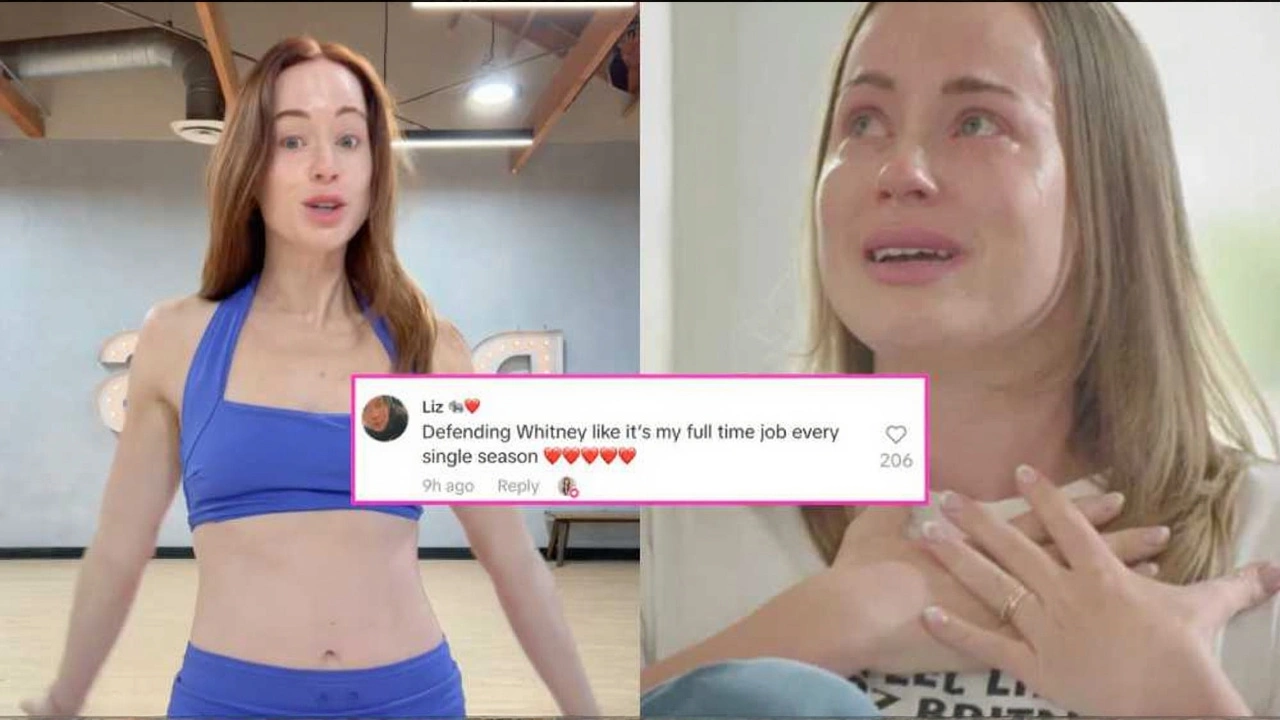Whitney Leavitt’s dream of making the finals of Dancing With The Stars season 32 ended in shock on November 18, 2024—just five days after The Secret Lives of Mormon Wives season 3 dropped on Hulu and Disney+. The elimination, which stunned fans and fellow contestants alike, came despite Leavitt being widely regarded as one of the strongest dancers in the competition. Her partner, professional dancer Mark Ballas, a three-time DWTS champion, had guided her through a string of high-scoring routines. But the audience didn’t vote for her dance moves. They voted against her reputation.
The Villain Effect
Andy Richter, the comedian and former DWTS contestant, didn’t hold back after his own elimination on November 11. "I think Whitney going home, to me, it’s absolutely insane," he told Entertainment Weekly. "She’s an amazing dancer." Richter then dropped the bombshell: "When I found out she was the villain on that show, I was like, ‘I hear you’re the villain on that show,’ and all she said was, ‘Well, villains get paid.’" That quote became the headline. And it wasn’t just Richter. Viewers watching The Secret Lives of Mormon Wives season 3 on November 13 were confronted with Leavitt’s raw confession: "I never quit MomTok. I just really needed a break… then I heard from my team Dancing With The Stars season 32 was going to cast someone from The Secret Lives of Mormon Wives, and that’s a motivator. I’ll come back for that." The admission turned her into a lightning rod. For many, it confirmed suspicions that her return to the MomTok circle—long known for viral drama, performative motherhood, and influencer clout—wasn’t about community. It was about casting calls.A Ghost That Won’t Fade
But the backlash didn’t start in November 2024. It started in 2021, when Leavitt posted a now-deleted TikTok video dancing beside her newborn son, Liam, who was hospitalized with RSV and pneumonia. "Lil Lee (or Liam) was taken in cause of oxygen. He tested positive for RSV," she captioned it. The video went viral—for all the wrong reasons. Critics accused her of exploiting her child’s illness for views. Her husband, Conner, reportedly told her to delete it after seeing the backlash. She did. But the internet never forgot. During season one of The Secret Lives of Mormon Wives, Leavitt addressed the incident with visible pain. "Everyone was so quick to forgive Taylor online for swinging," she said, referencing another MomTok scandal, "and I feel like I still get bashed on every video." On the Not Skinny But Not Fat podcast in June 2024, she added: "I didn’t even know what was happening with that video. I needed some time before I came out and said anything. I hate that’s like such a part of my life. It will always haunt me and always be with me." Yet, according to multiple cast members on The Secret Lives of Mormon Wives season 3, Leavitt told them the TikTok was intentionally crafted to "get likes and clout." That contradiction—between her apology and her alleged motive—became the narrative that stuck.
The Cross-Platform Fallout
What happened this November was unprecedented: a reality TV show’s premiere directly sabotaged a contestant’s chances on another network’s competition. Hulu and Disney+ dropped all eight episodes of The Secret Lives of Mormon Wives season 3 at once, triggering a social media firestorm just as DWTS voting opened. Viewers who’d just seen Leavitt call herself a "villain" for profit didn’t just watch her dance—they judged her character. No one from ABC or DWTS producers has commented on whether the timing was coordinated or if the show’s voting algorithm was skewed by the influx of negative sentiment. But the effect was undeniable. Leavitt’s elimination wasn’t the closest vote of the night—it was the most emotionally charged.
What This Means for Reality TV
This isn’t just about Whitney Leavitt. It’s about the new reality: your past social media posts are now permanent casting notes. Your podcast admissions are future voting blocks. Your "just for fun" TikTok can haunt your career for years. In an era where influencers pivot between shows, brands, and scandals, the line between authenticity and performance has dissolved. Audiences no longer just watch—they investigate. And they vote with their anger. Leavitt’s journey—from hospital room to TikTok fame to reality TV villain to DWTS elimination—shows how quickly a single moment, amplified by algorithmic outrage, can derail a dream. And there’s no reset button.Frequently Asked Questions
Why was Whitney Leavitt eliminated from DWTS despite strong dance scores?
Though Leavitt earned high scores from judges, audience voting was heavily influenced by her "villain" portrayal in The Secret Lives of Mormon Wives season 3. Her admission that she returned to MomTok specifically to audition for DWTS, combined with lingering backlash over a 2021 TikTok video of her dancing beside her hospitalized newborn, created a negative perception that overrode her performance. Voting patterns shifted dramatically after the show’s November 13 release.
Did Hulu or Disney+ intentionally time the release to hurt her DWTS chances?
There’s no evidence that Hulu or Disney+ coordinated with ABC to sabotage Leavitt. However, the simultaneous drop of all episodes just days before DWTS voting opened created a perfect storm. The timing was likely coincidental, but the impact was strategic—for viewers, not producers.
How did the 2021 TikTok video affect her reputation years later?
The 2021 video, showing Leavitt dancing next to her sick infant, sparked accusations of exploiting her child’s medical emergency for clout. Though she deleted it and later apologized, the footage was archived and resurfaced during The Secret Lives of Mormon Wives season 3. The narrative of "performative motherhood" stuck, and many viewers saw her DWTS audition as proof of a pattern—making her a target for moral outrage, not just entertainment.
Is Whitney Leavitt planning to respond to the controversy?
As of November 21, 2025, Leavitt has not issued any public statement, social media post, or interview addressing her DWTS elimination or the backlash. She has remained silent, a common response among reality stars facing sustained public criticism. Her silence may be strategic, but it also allows the narrative to continue unchallenged.
What does this say about influencer culture today?
Leavitt’s case reveals how influencer culture now operates like a permanent courtroom. Every post, podcast comment, or offhand remark becomes evidence. Audiences don’t just consume content—they audit it. Success now depends not just on talent, but on perceived authenticity. And once you’re labeled a "villain," even a flawless dance can’t save you.
